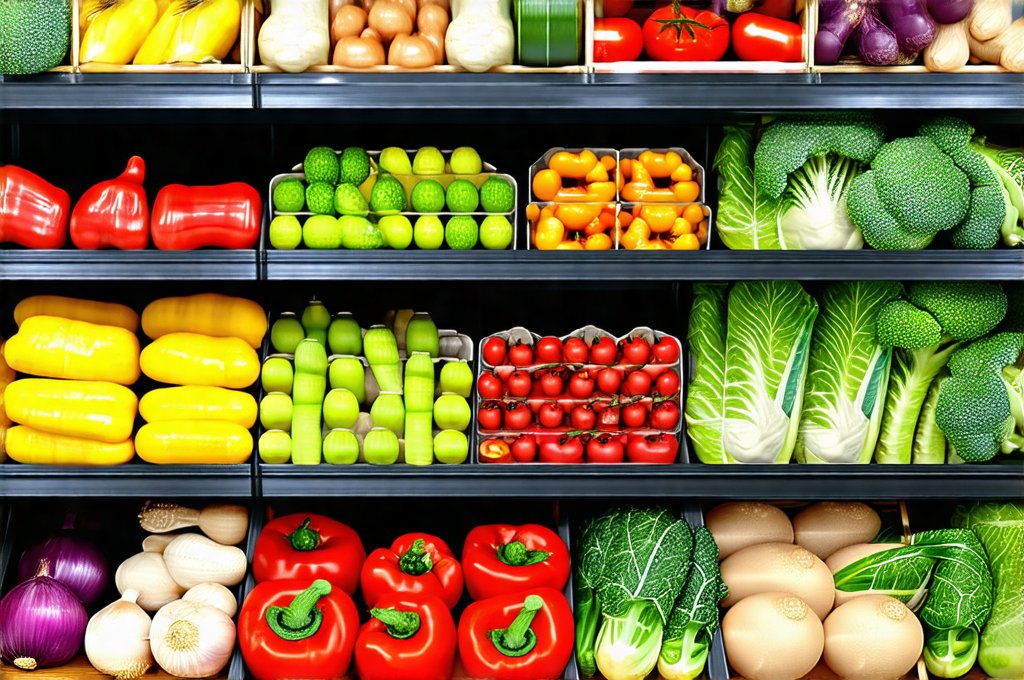Navigating grocery stores can be a minefield for anyone with digestive issues. What looks like a healthy option on the shelf might trigger bloating, gas, pain, or other unpleasant symptoms. The sheer volume of choices, coupled with often-misleading labeling, makes it difficult to discern what will support your gut health and what will sabotage it. Many common ingredients—even in seemingly innocuous foods—can exacerbate underlying sensitivities or conditions like Irritable Bowel Syndrome (IBS), Crohn’s disease, ulcerative colitis, or food intolerances. This article aims to equip you with the knowledge to confidently navigate grocery aisles, identify potential triggers, and build a shopping list that prioritizes digestive comfort. It’s about empowering yourself to take control of your dietary wellbeing, rather than being at the mercy of unpredictable gut reactions.
Understanding your specific sensitivities is paramount. What bothers one person won’t necessarily bother another. The goal isn’t to eliminate entire food groups unnecessarily, but to identify and minimize foods that demonstrably cause you distress. Keeping a detailed food diary – noting what you eat, when, and any resulting symptoms – can be incredibly helpful in pinpointing problem areas. This information will then inform your grocery shopping choices. Remember to consult with a registered dietitian or healthcare professional for personalized guidance; this article is intended as informational only and should not replace professional medical advice. If you suspect a hidden food intolerance, seeking professional help is crucial.
Common Culprits: Foods to Be Wary Of
Many seemingly harmless foods are notorious for causing digestive upset in susceptible individuals. High-FODMAP foods, for example, frequently top the list. FODMAP stands for Fermentable Oligosaccharides, Disaccharides, Monosaccharides and Polyols – essentially a group of short-chain carbohydrates that are poorly absorbed by the small intestine. This leads to fermentation in the large intestine, producing gas and potentially triggering symptoms like bloating, cramping, and diarrhea. Beyond FODMAPs, certain fiber types, artificial sweeteners, and even healthy fats can present challenges for some individuals.
The key isn’t necessarily avoidance altogether but moderation and mindful consumption. For instance, a small portion of applesauce might be tolerated, while a whole apple could lead to discomfort. Learning your tolerance level is crucial. This requires experimentation – carefully reintroducing potential trigger foods in controlled amounts and observing the effects. Reading ingredient lists diligently is also vital; hidden sources of FODMAPs or problematic additives can lurk in unexpected places. Be particularly mindful of “sugar-free” or “diet” products, which often rely on polyols like sorbitol or mannitol—known intestinal irritants. If you have IBS, knowing 5 foods to avoid can make a significant difference.
Finally, don’t underestimate the impact of processed foods. These are frequently loaded with ingredients that can disrupt gut health, including emulsifiers, preservatives, and artificial flavors. Opting for whole, unprocessed foods whenever possible is a cornerstone of digestive wellbeing. The fresher and more natural the food, generally the better it will be tolerated. Considering an anti-inflammatory diet might also prove beneficial.
Navigating Gluten & Wheat
Gluten, a protein found in wheat, barley, and rye, presents challenges for individuals with celiac disease or non-celiac gluten sensitivity. Even those without diagnosed conditions may experience bloating, fatigue, or digestive discomfort after consuming gluten-containing products. While completely eliminating gluten is necessary for those with celiac disease, others may find relief by reducing their intake or switching to alternative grains.
- Look beyond obvious sources like bread and pasta. Gluten can be hidden in sauces, soups, salad dressings, and even some medications.
- Consider alternatives: Rice, quinoa, oats (certified gluten-free), corn, and buckwheat are excellent gluten-free options.
- Be cautious of “gluten-free” labeling. It doesn’t necessarily mean the product is healthier overall; it simply means it lacks gluten. Check the ingredient list for added sugars or processed ingredients. Planning ahead can help you handle digestive issues even during holidays!
Dairy Dilemmas: Lactose & Beyond
Lactose intolerance, a common digestive issue, results from difficulty digesting lactose—the sugar found in dairy products. Symptoms can range from mild bloating and gas to severe diarrhea and abdominal pain. Many people assume they are lactose intolerant when the issue might be related to other components of dairy such as casein or whey proteins.
- Lactose-free alternatives: Numerous options exist, including lactose-free milk, yogurt, and cheese.
- Fermented Dairy: Yogurt with live and active cultures can sometimes be better tolerated than regular milk, as the bacteria help break down lactose. Kefir is another good option.
- Beyond Lactose: If dairy continues to cause problems even with lactose-free products, explore alternatives like almond milk, soy milk, oat milk, or coconut yogurt. Be mindful of avoiding soy if you experience sensitivities.
The Sweetener Situation: Artificial & Natural
Artificial sweeteners are often marketed as healthier alternatives to sugar, but they can wreak havoc on the digestive system for many people. Polyols like sorbitol, mannitol, and xylitol—commonly found in “sugar-free” products—are particularly problematic, drawing water into the intestines and causing diarrhea or bloating. Even natural sweeteners like agave nectar and excessive amounts of fructose can contribute to digestive issues.
- Read labels carefully: Be vigilant about identifying artificial sweeteners and polyols.
- Moderate Natural Sweeteners: Use natural sweeteners like maple syrup or honey in moderation.
- Explore Alternatives: Stevia, while not without its critics, may be better tolerated by some individuals. Ultimately, reducing overall sugar intake is the most beneficial approach for digestive health. If you react to supplements, it’s important to assess all ingredients carefully.
The information provided here is intended for general knowledge and informational purposes only, and does not constitute medical advice. It is essential to consult with a qualified healthcare professional for any health concerns or before making any decisions related to your health or treatment.


















